Forum Replies Created
-
AuthorPosts
-
etienneSpectatorStill trying to get the images on…
Etienne
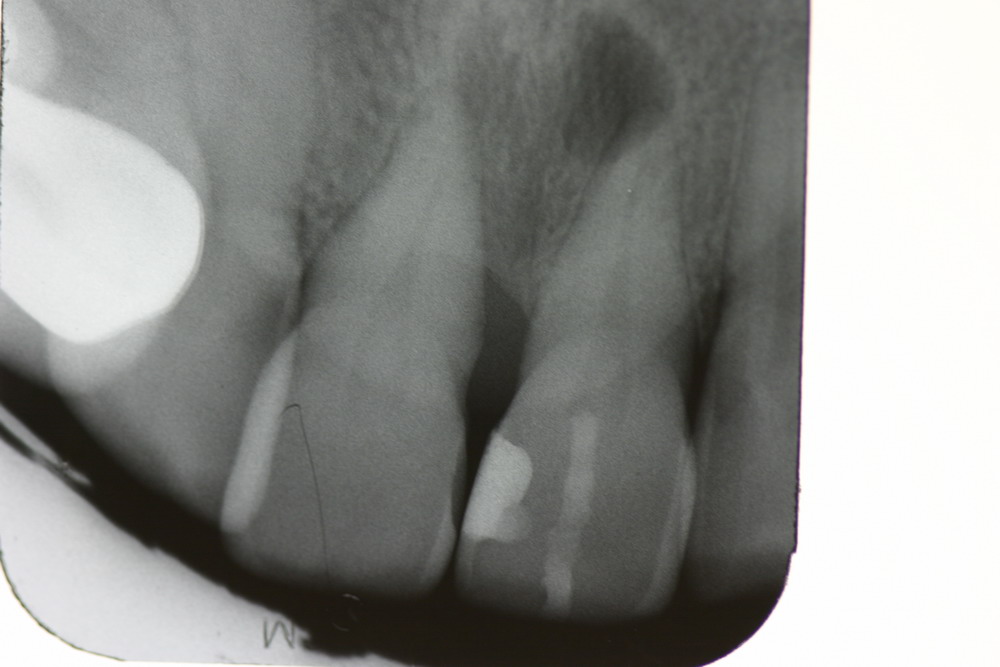
(Edited by etienne at 3:31 pm on Sep. 2, 2005)
AnonymousSpectatorHi etienne,
I assume #35 is the mandibular molar with all the bone loss on the distal root?
I wouldn’t hestitate in my efforts to keep #8.
#35 I would first pulp test, check occlusion and then discuss with the patient on whether or not they wish to proceed with IMO herodontics.It appears that with proper tx and home care the overall prognosis would be good and #35 would be guarded if treated.
What type of perio treatment (wavelength/procedure) were you considering?
etienneSpectatorHi Ron
Sorry about that, #35 should have been #31 I assume? In international it would be 47.
As the Periolase is not available in South Africa the idea was to use my Nd:YAG to attempt to stimulate bone regeneration. I was wondering what you guys thought..waste of time?
Regarding #8, doesn’t the lack of vertical bone walls to the lesion worry you? With other words the horisontal loss…
Thanks for your time
Etienne
dkimmelSpectatorEver since Allen Williams posted awhile back I have been thinking….
as I think back on who is having better results with laser analgeisa it is those that are using lower energy levels and magnification at a min of x6 or a scope. Those that are using higher energy levels are having the most problems.
So is a big part of my success due to a placebo effect?
Is it because I have preconditioned them as to what to expect?
Is it that I have an older patient population?This morning I was playing with a few extracted teeth. Sort of a pilot study. I sectioned them and then polished the cut surfaces. I used the Delight at 20HZ and metered at 5W no water ( This was without a tip).
I had a range of 0 to .4W depending on the thickness of the section 1 to 3mm and the area of the tooth being lasered. That is some areas had greater amounts of enamel and other enamel and dentin.
Now there are a ton of varibles with what I did. The biggest was using an extracted tooth. The other is the meter I was using is not reliable below 1W….
Robert Gregg DDSSpectatorAnyone care to comment on Theileman’s Law?
Etienne,
You will need to fabricate a Michgan, Tanner or Panke splint–all the same name for a lower occlusal guard, in order to lock in #31.
You will ned to adjust the occlusion full mouth as this patient has occlusal disease that is involved on the LL as well as the LR (#31).
No worries on #8 and the level of bone loss–just your laser dosimetry.
Still care to give it a go?
Bob
You will need to spint #8 at the time of treatment with Ribbond and composite, ortho wire and composite
etienneSpectatorHi Bob
1)Would you elaborate on Theileman’s law please?
2)Would you care to elaborate on the dosimetry?
I saw the patient this morning for the first time and took some x-rays of my own. You are of course correct, patient displays all the symptoms of occlusal disease. #31 has a crack lingual as well as buccal, I am more concerned about the lingual crack. I would really appreciate all contributions on this case.
Thanks very much
Etienne


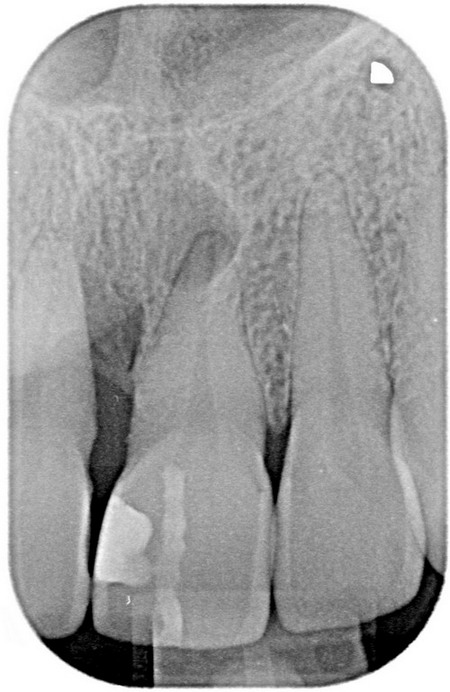
[img](Edited by etienne at 5:29 pm on Sep. 3, 2005)
etienneSpectatorI also took some pictures…
Take care
Etienne
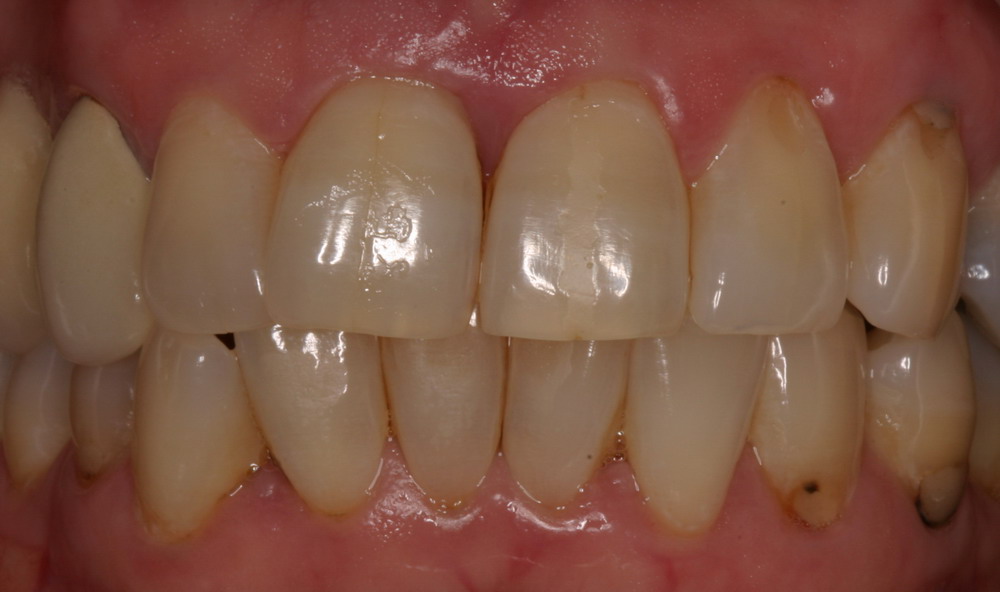
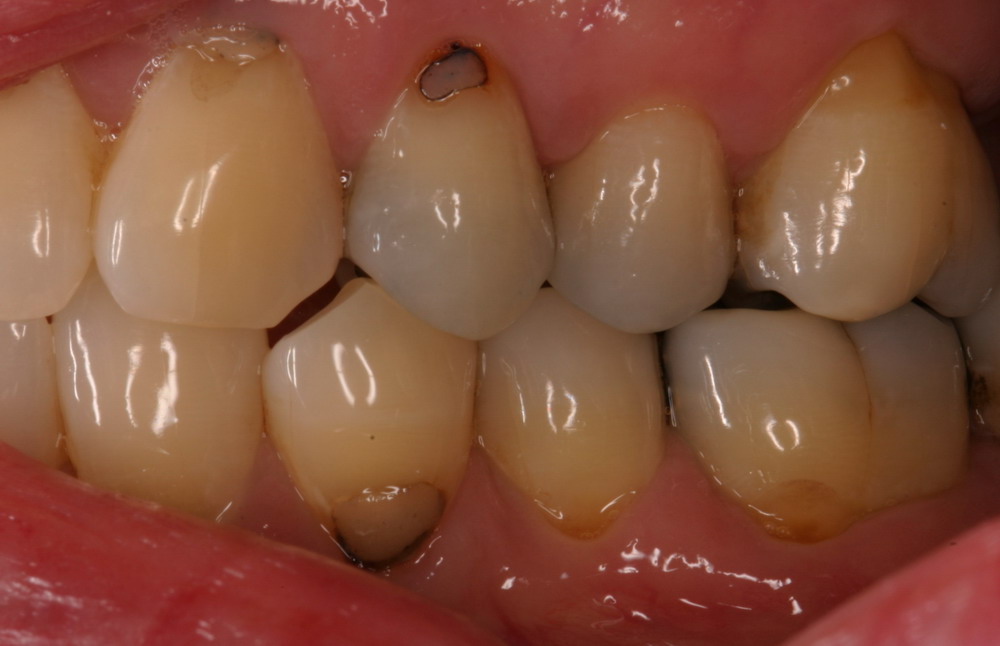
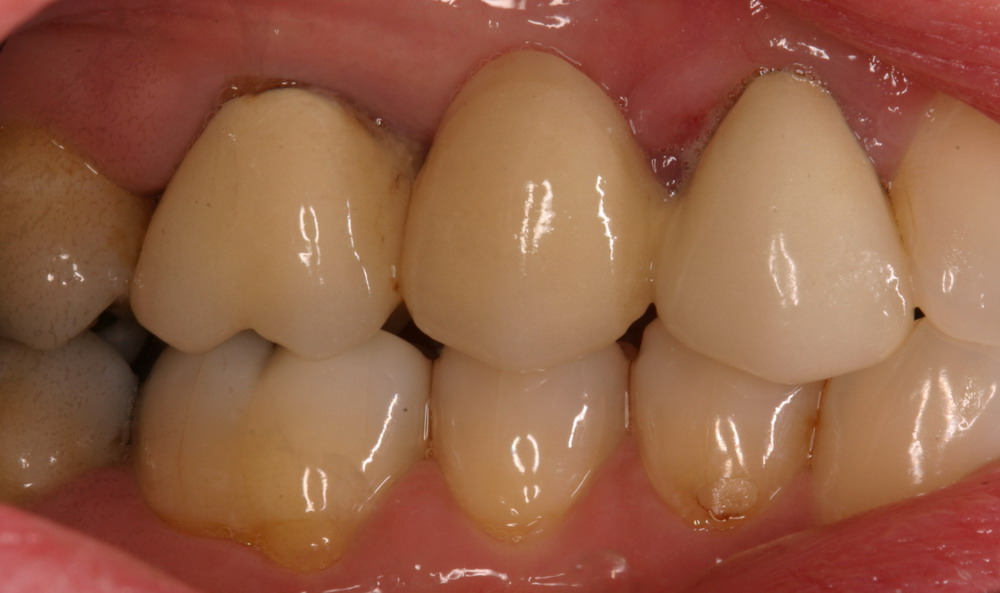
fiboSpectatorI think it is very difficult to know how this thing works, if it works at all..
Pain is a very complicated matter.
There is the stimulus that travels to the brain and there this stimulus is interpreted..
if you have real anesthesia the stimulus never reaches the brain or is never generated (like with an injection).
the placebo effect has more to do in the way the brain interpretes this stimulus.
I have been working a lot with hypnosis on my patients in the past and you could do some very spectacular things also. I have removed nerves from vital teeth, extracted teeth etc. without anesthesia, you just have to get the patients in a deep trance and everything is possible.
getting them there is the most difficult and tedious part..
It could be that part of the laser anesthesia is just that; inducing a light trance and convincing the patient it works..several things are in place to get just that..
concentration of patient and dentist, repeated clicking sounds during a certain period, the status of the laser as a non-painfull tool..but then again…who cares.. as long as it works. Certainly not the patient.
However I think there is more to it.
I treated several patients lately who had a very high sensitivity in the cervical area and treating them with my laser (er:cr) made it disappear and several months later the sensitivity has not come back.
This means to me that there has to be some changes going on because sugestions under hypnosis tend to have an effect only for a few days.I think the only way to know is to really measure the pulse traffic going on in the nerve during procedures, with or without the “laser anesthesia”.
just my thought
filip
Glenn van AsSpectatorGreat photos Etienne.
I would pulp test 31 (47) and look for a crack on the distal marginal ridge. That I am sure from looking at all the abfraction lesions is a vertical fracture on the distal of the 47 and will probably not respond to the perio.
Pulp test will probably show non vital due to the crack going pulpal. Probings are probably to the apex.
I think if its vital you can treat it but with the microscope we see this ALL the time with an MO in the 2nd molar and a large crack on the distal.
Take a look at this case I did the other day. I just think your crack is alot bigger due to the clenching your patient is doing.
Get a Night guard in there pronto.
Glenn


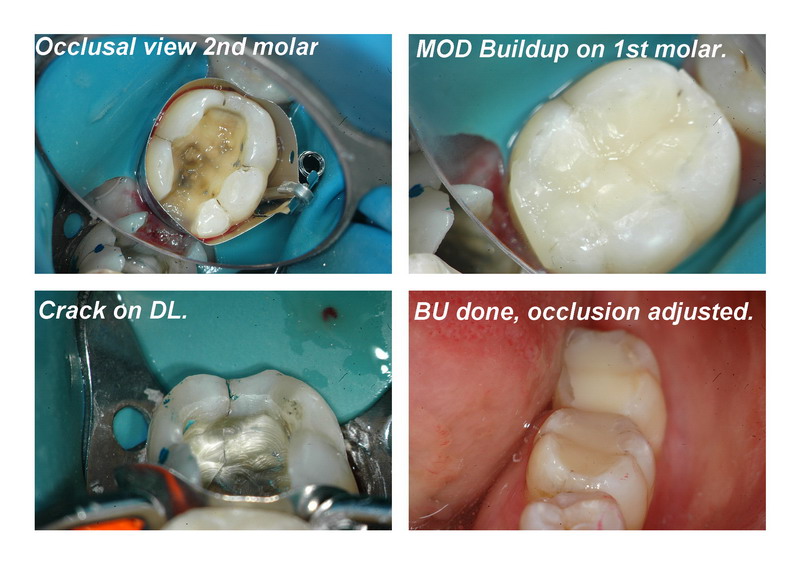
Robert Gregg DDSSpectatorEtienne,
Thieleman’s Law = posterior malocclusion has reciprocal anterior (cross-arch) pathological manifestations. #31 occlusal interference = trauma to #9. The fact that #8 also has pathology means the lower left posterior is involved but is not obvious on the radiographs. Hence the need for a full lower occlusal guard.
This is a classic example.
#31 is probaly perio/endo and will want to super-erupt when you treat. Intracoronal splinting in these cases is not a good idea. A well secured Ribbond splint which is tucked into the buccal interproximal then layered over with a hybrid composite will much more likely stay secure.
Combine with a Tanner full lower splint should help to stablized the tooth and the occlusion.
Use the settings I emailed to you.
Dosemitry = no more than a minute on each large defect as I described. You can always treat again.
Good luck!
Bob
Robert Gregg DDSSpectatorGlenn,
Good ideas and deserve differential diagnosis consideration.
Could be fracture or compresive/resorptive bone loss.
Bob
etienneSpectatorHi Glenn
Thanks for your note….talking about great photos!!
I tested 31 and it responds like a vital tooth should but hypersensitive to cold. I didn’t see a distal crack (might see it when the filling is removed of course) but there is a very evident lingual crack…
Regarding night guards..as a matter of interest, which do you prefer usually?
Thanks Glenn
Take care
Etienne
PS: I am in the process of installing my scope!
etienneSpectatorHi Bob
Thieleman you say? Well, he (and you) knows their stuff!!!

Would you use a general sterilizing setting throughout the mouth and the special settings on the deep lesions?
How often can you treat? What sort of time span between treatments?
Thanks Bob!
take care
Etienne(Edited by etienne at 4:26 pm on Sep. 4, 2005)
Glenn van AsSpectatorGreat documentation Etienne….it sure helps alot when you post stuff like you have.
Well if 31 tests vital then you still have a chance to cold. I find ALOT of these teeth with MO amalgams in the 2nd molars on clenchers have distal cracks and these run very deep. The crack may exit like mine did on the lingual (very sensitive to cold and to chewing) or may go vertical on the distal. Were the probings in a wide area (ie was the whole distal surface wrapping around to the buccal and lingual involved) or was it a very narrow trough.
Narrow trough suggests vertical crack.
Just warning you to be on the lookout for this. THere is obviously ALOT of bruxism going on looking at all the abfraction lesions and I am not a big occlusion guy like Bob is. What great information about Thielmans law…..another thing I didnt know.
For splints, I am not the guru that Bob is. I typically use a thermoplastic splint that covers the occlusal surface of one arch. Bob is much better able to handle this question than me.
Finally, congrats on the scope. It will open your eyes to so many things, but be patient and if you have questions dont hestitate to email me if I can be of any help.
I forget now which brand you bought , but I can be of some help with positioning etc with all brands.
Thanks again for an intersting case, I learned quite a bit from Bob as I usually do.
Glenn
etienneSpectatorThanks Glenn..you guys keep raising the bar ;))
My gut feel is that you are probably right concerning the crack. That was my initial diagnoses as well. For a change this patient admitted to bruxing even before I asked her. I have been having a few bruxers that refuse to admit even the remotest chance that they might be bruxing…
I bought the Seiler Revelation with all the bells and whistles, still need to finalize the installation though. Fortunately I got your DVD as well (by the way, VERY nice product and WELL worth the money).
I’ll let you know how the case progresses…
Thanks for your time
Etienne -
AuthorPosts
